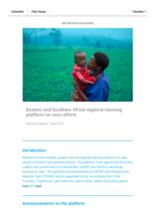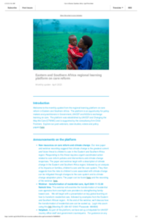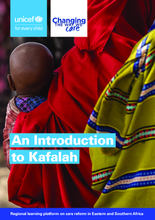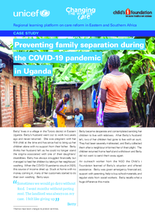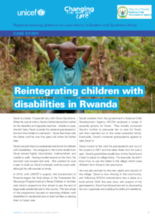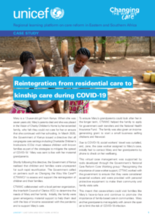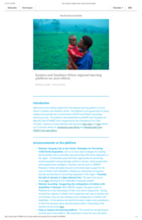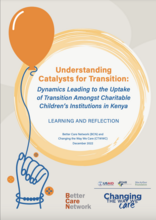Displaying 71 - 80 of 665
This webinar provided an opportunity for the care community to share experiences on the transformation of residential care.
This is the monthly update of the Eastern and Southern Africa Regional Learning Platform published in April 2023.
This paper aims to contribute to a better understanding of the nature and characteristics of Kafalah in Eastern and Southern Africa and identify effective strategies to support Kafalah.
This case study tracks the impact of family support services to a Ugandan mother and her family during the COVID-19 pandemic in an effort to prevent family separation.
This case study documents the story of David's reintegration from a residential care home for children with disabilities in Rwanda to kinship care with his grandparents.
This case study documents the story of Mary, one of thousands of children in Kenya who were sent to family care suddenly without any preparation when the COVID-19 pandemic hit. Mary's story highlights the need for family assistance to see a reunification through to successful reintegration.
This is the monthly update of the Eastern and Southern Africa Regional Learning Platform published in January 2023.
This study was designed to be a small insights-based qualitative learning and reflection study to explore catalysts for transition. It was based on interviews conducted with Charitable Children’s Institutions’ (CCI) directors that sought to identify and explore the range of factors that influenced each director’s decision to transition their residential care services, and the interplay between those factors.
This UNICEF ESARO webinar discussed strategies for building strong families and communities and preventing child-family separation in the region.

